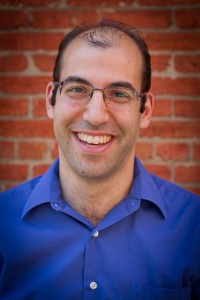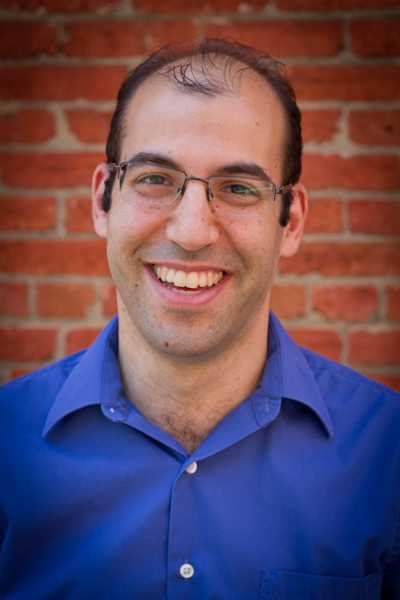Jacob Feinspan
The fact that Jews U
We start from the Jewish community’s collective experience of moving from the margins to the mainstream. We know how fragile life is, and want to make sure that everybody in our community has access to the same opportunity that we now have. Then we build from our community organizing roots by meeting people where they are. In Washington that means people who are politically interested, who are incredibly smart, who often have really serious jobs focusing on national issues and who don’t have a lot of time. JUFJ enables Jews of all ages to make a real difference on a local level by offering ways to take actions that are Jewishly grounded and that really connect people with their neighborhood and their community. People make time in their lives for JUFJ because we’re effective, because of the relationships we have with each other and because there’s something that’s just more meaningful and powerful about doing this work proudly as Jews.
Over the past few years we’ve come to understand that there are striking differences between what our younger, typically non-synagogue-affiliated members are looking for, and what older, typically synagogue-affiliated members want from the organization. Younger leaders without children describe JUFJ as their Jewish home, a primary identity, and a place they go to for friends and to feel like they belong. They seek relationships and a way to feel grounded and connected where they live. For our older leaders, JUFJ provides a meaningful way to integrate their commitment to social justice into their lives. Their Jewish lives are already full – often and especially with synagogue commitments. They aren’t looking for new relationships; they want an efficient and meaningful way to make a difference.
We’ve been able to successfully engage both groups by working at the state and local levels to make change. While the national political culture is increasingly dysfunctional, city and county governments in our region avoid the partisan rancor (they are in fact single-party legislatures), enabling us to pass new legislation on the merits and with smart application of political pressure. And that is increasingly the trend around the country as both progressive and conservative activists are increasingly looking to local governments to test and advance new policy agendas.
Our work and growth broadly supports most of the propositions in Sid’s essay – that it is smart strategy to engage Jews in tzedek work, that Jews are hungry for real relationships and friendships, and that innovative engagement with Jewish wisdom is meaningful and exciting for our community.
Perhaps one thing that is outside of the explicitly articulated positions is that we’re quite aware that we’re not a full answer to people’s Jewish needs. JUFJ is very good at one or two pieces of what people are seeking in their life, but we’re not a full-service organization competing with synagogues. Rather, we’re competing with other leisure, social, or political activities. So we need to be exceptionally good at what we do, because if our work isn’t good enough (at making change, building relationships, or even just running efficiently) we’ll lose our base.
_______________
Jacob Feinspan is the Executive Director of Jews United for Justice (JUFJ), which helps Jews from the Washington and Baltimore region act on their shared Jewish values by pursuing justice and equality in the local community. Before joining JUFJ, Jacob founded the advocacy program at American Jewish World Service and coordinated anti-poverty advocacy and grant-making at the Religious Action Center of Reform Judaism. He serves on the advisory boards of the Jewish Social Justice Roundtable, DC Fiscal Policy Institute, and DC Working Families, and is the past chair of the Jubilee USA Network.


